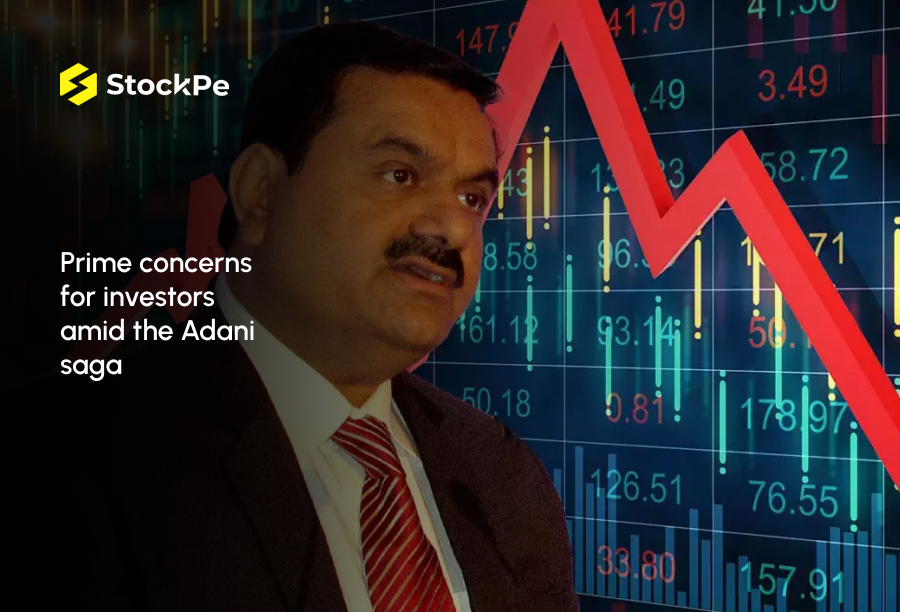The Adani Group stands in the middle of controversies and market movements and has come into focus around the world. The events in the recent past especially those involving the Adani Power and specifically with Bangladesh have added more complications to the conglomerate. These changes bear certain implications which make it important for any investor who wishes to invest in biotechnology to have an understanding of such developments.
This article includes a deep dive into everything around the Adani Saga and what it may mean for investors.
Bangladesh Power Supply Crisis
Adani Power has cut by half the electricity supplied to Bangladesh due to $ 850mn in unpaid bills, exposing risks in its global revenue business. This development is significant given that:
- The revenue concerning FY24 in India was ₹1,03,075 crore, of which Bangladesh supplied ₹7,370 crore or 15 per cent to Adani Power Limited.
- The unpaid dues are almost similar to this revenue figure, and they account for 96 percent of Bangladesh’s FY24 revenue.
Context of the Contract
Adani Power started its electricity exportation to Bangladesh in FY24 and signed a power-selling agreement in FY17. This helped Adani sell power for $0.1008 per unit, or Tk12 per unit, according to sources. This rate is notable as:
- It is 27% higher than India’s private power producers.
- It is 63% higher than Indian state-run power plants.
With political instability and inadequate availability of US dollars, Bangladesh has felt the pressure to meet these payments. This has created legal and operational challenges to the two.
Impact on Bangladesh
Adani power alone accounted for almost 10% of Bangladesh’s total electricity. This has led to greater chances of a general scarcity of power and blackouts while putting extra pressure on its weak electrical sector. Some of the measures that have been implemented to help resolve the crisis are partial payments some of which are a $170 million letter of credit that was offered recently but they are not sufficient.
As a result, the High Court of Bangladesh has questioned the utility, fairness, and sustainability of such deals and has sought a review of all such agreements made with Adani. Certainly, owing to the possibility of disagreement on certain aspects of the contracts, a high-level committee has been constituted and as a result, the contracts might have to be renegotiated or even canceled.
Adani Power’s Financial and Operational Resilience
In the Adani Power case, concentration risk is apparent since concentration with only Bangladesh exposes the power company to potential financial volatility. Despite this, the company’s domestic business provides a counterbalance:
- India’s total energy consumption might rise to about 8%, which may help compensate for Bangladesh’s possible revenue loss.
- Adani Power’s domestic revenue and operating revenue growth were 11% and 30%, respectively in FY 24 primarily due to the new contract with Bangladesh.
Cash Flow Concerns
Straight revenue figures do not paint the complete picture. Adani Power’s cash flow management is a critical factor as:
- It signaled that the company still receives most of its revenues because the operating cash flows have remained close to the operating profits.
- Nevertheless, there was a significant increase in trade receivables, which was up by 26% by September 2024, which could lead to short-term liquidity constraints if this is the growth path of trade receivables.
Investor Sentiment and Market Movements
The current financial misfortune of the Adani Group is not limited to Adani Power only. Across its businesses, declining foreign investor confidence has become evident as:
- FII stakes came down from 17.8% in March 2023 to 11.3% in September 2024 in Adani Enterprises.
- Similarly, the proportion dropped to 15.2% from 17.1% in Adani Green and 15.2% from 18% in Adani Ports.
The sharp drop reflects growing caution among institutional investors, driven by:
- Existential risks such as high valuations and market fluctuations
- Lawsuits – stock manipulation, accounting fraud, and the misuse of offshore funds
Retail investors, on the other hand, are generally more positive and are encouraged by positive news or short-term movements in the stock market. Experts state that this could result in increased volatility in the markets due to a gap between institutional investors’ pessimism and the retail’s optimism.
Legal and Regulatory Challenges
The Adani Group faces an increasingly challenging regulatory environment, both domestically and internationally, as follows:
- In Bangladesh, the High Court thinks the Adani power agreement is not fair, paving the way for similar reviews to occur.
- Past accusations of favoritism and pollution offenses in India have increased legal pressures on the conglomerate.
- The American indictment and the earlier report by Hindenburg Research have put Adani in a further more aggressive corner, alleging that the group has committed major financial frauds and corporate governance misdeeds.
Stock Performance
The ripple effects of these controversies are evident in the stock market with:
- Adani Enterprises’ stock price declined by 22% and Adani Energy Solutions by 20% and hit a 52-week low price.
- Others such as Adani Green Energy, and Adani Total Gas also fell by between 13% – 18%.
Outlook for Investors
While the immediate challenges for Adani Power and the broader group are significant, there are reasons for cautious optimism:
- The demand for aging in domestic sectors remains high in India which is a prospect in the growth of Adani Power.
- If the Bangladesh payment crisis issues are successfully handled then one can expect that international revenues would gain stability.
However, the other legal, reputational, and financial risks which are associated with the Adani Group still exist. Investors should:
- Pay attention to shifts in stock costs and fluctuations in overall income and position on debts
- Closely monitor cases in Bangladesh and the US and their legal and regulatory consequences
- Manage risks by reducing the concentration of high-risk stocks in their portfolio
Conclusion
The Adani case highlights the significance of disclosure, diversification, and managing risks as values not only for business entities but also for shareholders. At the same time, the conglomerate faces its problems, the story has raised concerns regarding dependence on concentrated revenues and high leverage in risky industries. The message for investors is simple – stay alert, remain informed, and avoid any short-term benefits; the focus instead should be on the long-term fundamentals.





